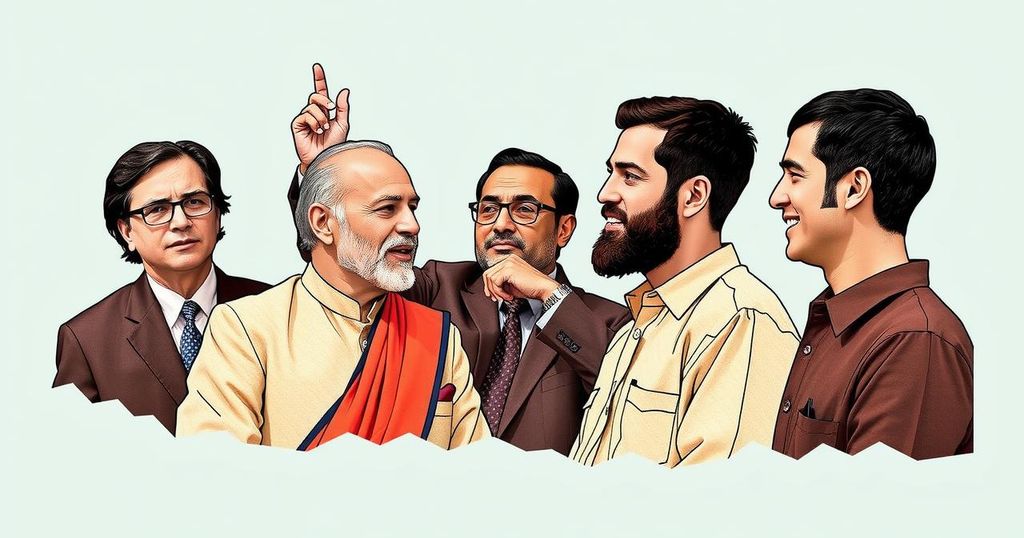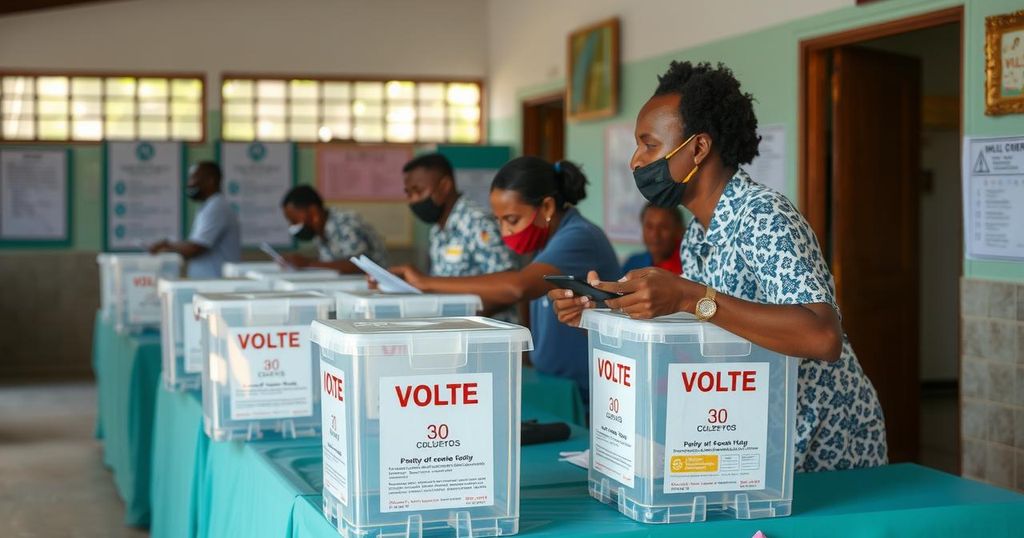2024’s Global Election Landscape: A Reflection on Democracy and Challenges
The year 2024 marked a historic election season with over 70 countries participating in significant electoral activities against a backdrop of geopolitical tensions and economic challenges. Notable shifts included substantial losses for incumbents, a rise in support for fringe and far-right parties, and concerning foreign interference in election processes. The re-election of Donald Trump highlighted prevalent discontent in the U.S., while South Asia exhibited youthful protests advocating for democracy, suggesting a complex future for global governance.
The year 2024 emerged as a pivotal moment for global democracy, characterised by significant electoral activities across over 70 nations, collectively influencing nearly half of the world’s population. High-profile elections, from India’s extensive general elections to the consequential polling in the United Kingdom and the United States, underscored a world grappling with rising tensions and conflicts. Amidst this backdrop, several democracies faced increased challenges, accentuated by foreign interference and public disillusionment with incumbents. Noteworthy outcomes featured a surge of support for fringe parties, particularly evident in countries like South Africa and Sri Lanka, while right-wing populism gained traction in many European states. Amidst these shifts, the 2024 U.S. Presidential election notably led to Donald Trump’s triumphant re-election, signalling a resurgence of populist rhetoric and right-wing policymaking. Overall, while some democracies navigated these waters by sustaining long-term governance, others faced notable electoral setbacks, reflecting a growing discontent among the electorate.
The 2024 electoral landscape was influenced by a complex interplay of factors, including economic instability, rising tensions, and electoral integrity challenges stemming from foreign influence. A significant shift occurred in voter sentiment, with considerable frustration directed at incumbents responsible for persistent issues such as inflation and unemployment. Additionally, the advent of generative AI has raised concerns regarding the amplification of disinformation campaigns, markedly impacting the integrity of democratic processes globally. This period served as a critical juncture for many nations, influencing their democratic resilience and electoral outcomes, particularly in the face of populism’s rise and increasing voter apathy.
The electoral events of 2024 serve as a poignant reminder of the shifting tides within global democracy, where rising discontent among voters has catalysed significant changes in governance. While some democracies have demonstrated resilience with established institutions, others have faltered under the weight of populist agendas and anti-establishment sentiments. The imperative for future democratic consolidation is underscored by the street protests in South Asia, illustrating that youth engagement remains vital. The implications of these elections will likely resonate into 2025 as nations grapple with integrating democratic values amidst evolving political landscapes.
Original Source: www.orfonline.org




Post Comment